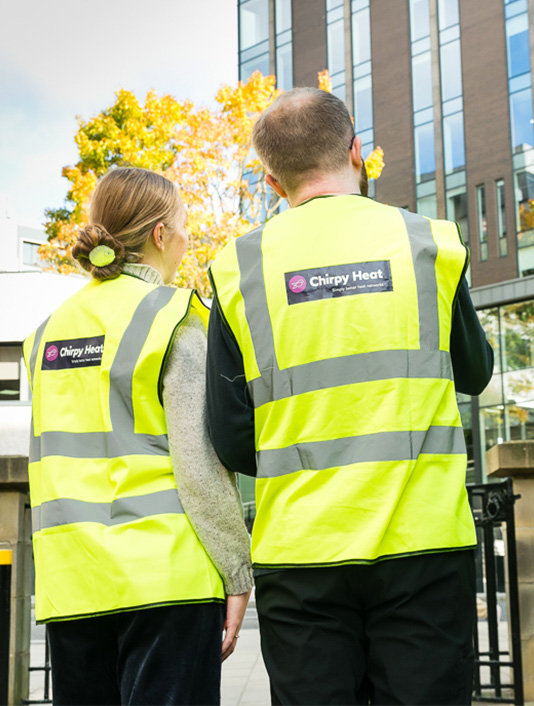In this blog, Nicholas Doyle, Director and Co-founder of Chirpy Heat, shines a valuable spotlight on the importance of answering three questions that will help you stay compliant with the first phase of full heat network regulation that begins on 1st April 2025.
1. Do you know how many heat networks you have?
This may seem like a stupid question, but heat networks have often not been recorded in asset databases all that consistently – this is not surprising because they have not had to be treated separately and sometimes under similar headings as gas and electric heating.
In 9 times out of 10, housing providers find they have more or fewer heat networks than they originally thought. The sector is not alone – the government and the heat network industry are not 100% sure of the total number of heat networks in the UK and whether they are communal, district, metered or unmetered.
Getting baseline information right is going to be essential for both regulation and also to manage costs and service delivery.
2. Are your complaints processes ready for a new statutory customer advocate and the Energy Ombudsman?
Housing providers already have well developed customer complaints process in place but until now all complaints have come under one heading. But from April there will be a designated consumer Advocate with Citizens Advice and a new Ombudsman responsible for redress.
You will now have to identify heat network complaints specifically, adhere to the requirements of Ofgem, the energy ombudsman, as well as enquiries from Citizen Advice. Whilst your main complaints process should be the basis for this, here are some questions to consider:
3. Do all your customers have a heat supply agreement?
This is the one of the first things that housing providers review and is often out of date or entirely absent.
Full regulation sets out very clearly what will be required in what is traditionally called a Heat Agreement or as Ofgem says ‘Relevant Supply Contract’ or ‘Deemed Contract’. Fulfilling these requirements is not simply a matter of sending out boilerplate agreements backed up by information on a website, but will mean putting in place information, process and data before they can be included.
This has to available ‘in writing’, in a single document ‘not incorporate any terms or conditions by reference to any other document, website or other resource’ and will have to include for example (and this just a few of a longer list):
Many housing providers are now developing their compliance plan to ensure they remain compliant, and the first step is answering these three questions ahead of the first phase that begins on 1st April 2025.
If you want to find out more and to discuss how you can also meet Heat Network Regulation drop us a line at [email protected] or get your free bespoke Regulation Insight Report here.

Whether you need immediate help with tackling an urgent issue or you’re ready to start your long-term strategic journey with us, please get in touch.
We use cookies to improve your experience on our site. By using our site, you consent to cookies.
Manage your cookie preferences below:
Essential cookies enable basic functions and are necessary for the proper function of the website.
CloudFlare provides web performance and security solutions, enhancing site speed and protecting against threats.
Service URL: developers.cloudflare.com (opens in a new window)
Statistics cookies collect information anonymously. This information helps us understand how visitors use our website.
Google Analytics is a powerful tool that tracks and analyzes website traffic for informed marketing decisions.
Service URL: policies.google.com (opens in a new window)
Marketing cookies are used to follow visitors to websites. The intention is to show ads that are relevant and engaging to the individual user.
LinkedIn Insight is a web analytics service that tracks and reports website traffic.
Service URL: www.linkedin.com (opens in a new window)
You can find more information in our Terms and Conditions and Privacy Policy.